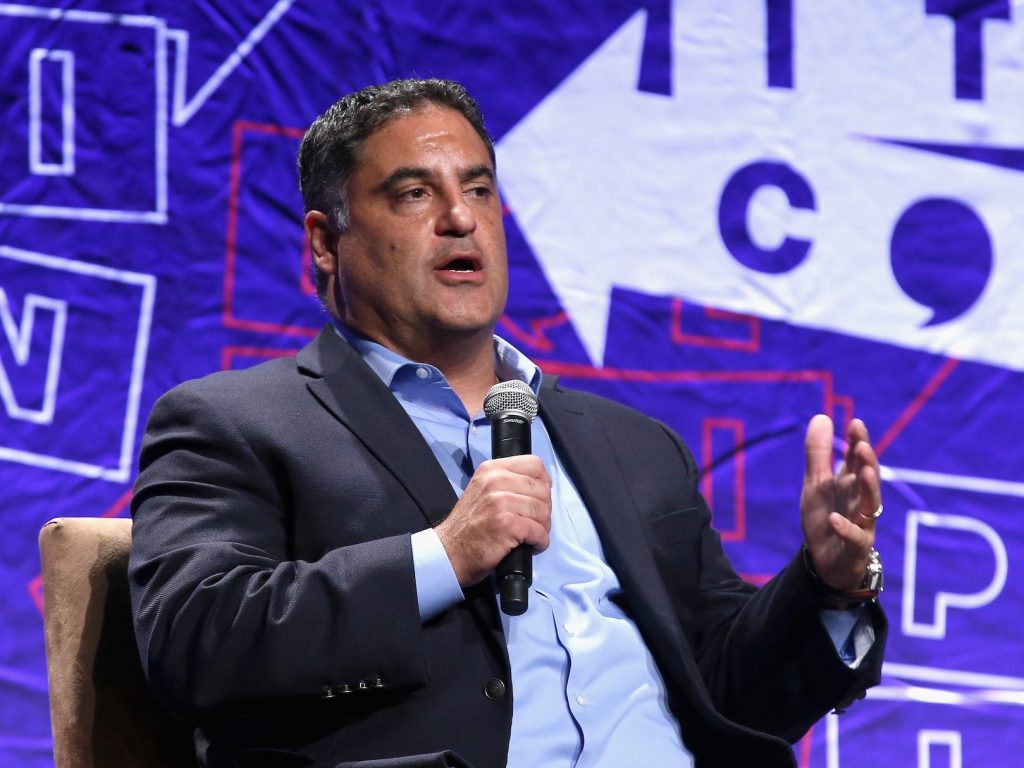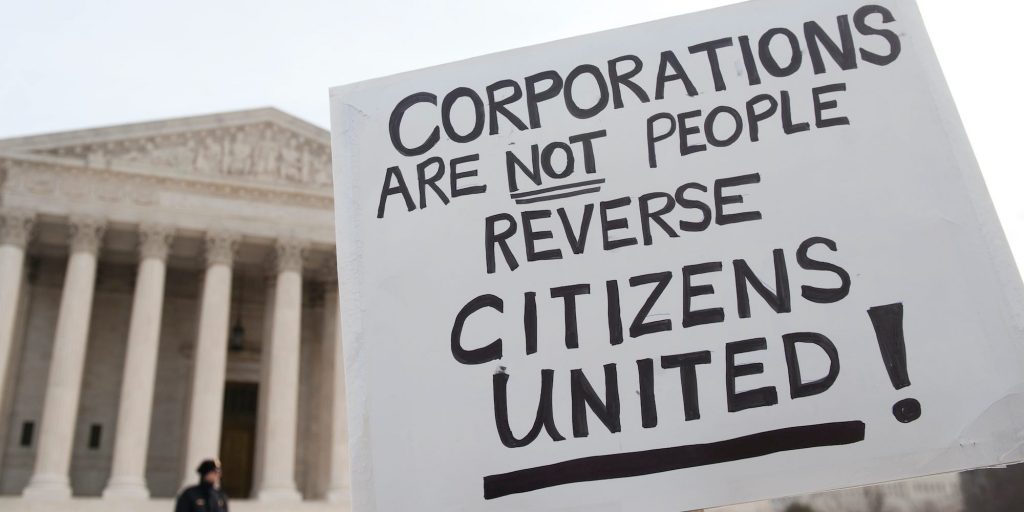- Some progressives are pushing for an unprecedented re-write of the Constitution.
- They want to trigger a constitutional convention to limit the role of money in politics.
- Stiff opposition has slowed — or even reversed — their progress.
Some progressives also want to use an unprecedented method of re-writing the Constitution to reshape American politics. But unlike conservatives, they're encountering much more vocal opposition from their own side.
Wolf PAC, an organization with ties to progressive commentator and The Young Turks founder Cenk Uygur, has been met with stiff opposition from the vast majority of center-left and good government groups who support campaign finance reform as it seeks a convention that would change limit money in politics.
"All of the establishment Democrats like the corruption, it is what gave them power in the first place," Uygur told Insider, railing against what he views as a coordinated effort to sink Wolf PAC's convention push.
Some convention opponents are concerned that Wolf PAC's resolution could be hijacked by conservatives to pad the number of states they need to trigger a Constitutional convention. Most scholars reject this fear of an overly expansive count, but the worry is palpable enough to have motivated some states to withdraw their previous support.
Two states, Illinois and New Jersey, have in recent years repealed previous resolutions sponsored by Wolf PAC, the organization that Uygur helped create in the wake of the Supreme Court's landmark decision in Citizens United v. Federal Election Commission and a lower court ruling — SpeechNow.org v. FEC — that helped unleash unfettered campaign spending by super PACs.
While Congress has initiated 27 amendments to the Constitution, the document has never been changed through a little-known, but constitutionally sanctioned process that required two-thirds of US states — 34 of them — to call for a convention where delegates may propose new amendments.
Like conservative convention proponents, Uygur and his allies, which include Move to Amend and prominent Harvard Law School professor and 2016 Democratic presidential candidate Larry Lessig, take comfort in the fact that a convention would only propose amendments, not ratify them.
An even greater number of states — 38 — would still need to approve any proposed changes. Like some conservatives, Uygur argues that this high bar reduces the risk that even a limited convention could turn into a constitutional free-for-all.
"They can propose anything they like, it ain't ever gonna pass unless we work together to end the corruption," Uygur said.

Nonprofit government watchdog group Common Cause has been one of Wolf PAC's leading opponents, successfully lobbying behind the scenes to convince state lawmakers that any constitutional convention — no matter its stated purpose — lead to chaos and unintended consequences. Common Cause also opposes a conservative-led effort to call for a constitutional convention that aims to significantly limit the size of the federal government and advance other conservative priorities.
"If you think the Constitution is bad now, how do you feel when Lauren [Boebert] and Marjorie [Taylor Greene] and Ted [Cruz] rewrite it? It would just be so much worse," Viki Harrison, director of constitutional convention and protecting dissent programs at Common Cause, told Insider. "It really hasn't gained much traction, but I'm getting a little nervous about it, quite frankly."
Even some liberal advocates for a constitutional convention concede that the fraught state of politics isn't conducive to an unprecedented update to its foundational document.
"It's a legitimate concern at a time of such polarization and division," Rep. Jamie Raskin, a Maryland Democrat, who as a state lawmaker pushed for a constitutional convention to limit so-called "dark money" in politics, told Insider.
